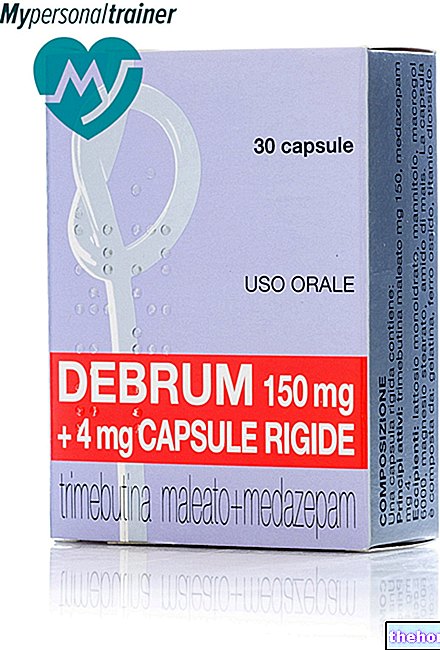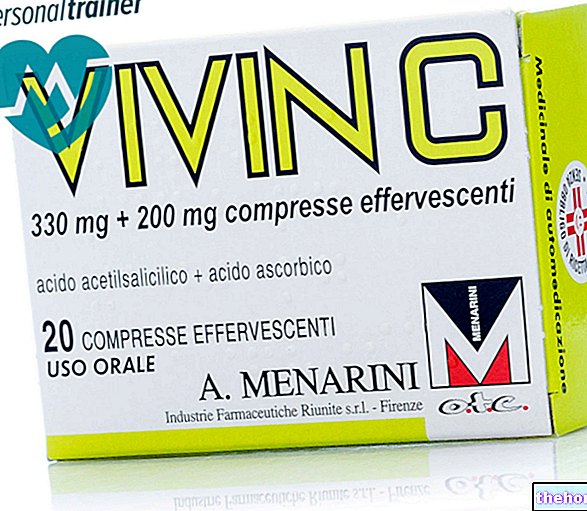Active ingredients: Erdosteine
Erdotin 150 mg hard capsules
Erdotin 300 mg hard capsules
Erdotin 300 mg dispersible tablets
Erdotin 225 mg granules for oral suspension
Why is Erdotin used? What is it for?
Erdotin contains the active substance erdosteine. It is a mucolytic, fluidifying in acute and chronic affections of the respiratory system.
Contraindications When Erdotin should not be used
Do not take Erdotin
- if you are allergic to erdosteine or any of the other ingredients of this medicine
- if you have an active peptic ulcer.
- if you have renal insufficiency with creatinine clearance <25 ml / min or severe hepatic insufficiency.
- if you suffer from phenylketonuria, limited to the granules in sachets for oral suspension, in the formulation of which there is aspartame.
- if you suffer from liver cirrhosis and deficiency of the cystathionine-synthetase enzyme due to the probable interference of the metabolites of the product with the metabolism of methionine.
Precautions for use What you need to know before taking Erdotin
Talk to your doctor or pharmacist before taking Erdotin.
Patients with mild hepatic insufficiency should not exceed a dose of 300 mg per day of Erdotin.
Interactions Which drugs or foods may change the effect of Erdotin
Tell your doctor or pharmacist if you are taking, have recently taken or might take any other medicines.
No negative interactions with other drugs have been reported.
Warnings It is important to know that:
Pregnancy and breastfeeding
If you are pregnant or breast-feeding, think you may be pregnant or are planning to have a baby, ask your doctor or pharmacist for advice before taking this medicine.
The safety of erdosteine in human pregnancy and lactation has not been established. Therefore, the use of Erdotin in pregnant or breastfeeding women is not recommended.
Effects on ability to drive and use machines
Erdotin has little or negligible influence on the ability to drive or use machines
Erdotin granules for oral suspension (sachets) contain sucrose and aspartame.
If you have been told by your doctor that you have an intolerance to some sugars, contact your doctor before taking this medicinal product. This medicine contains a source of phenylalanine. It can be harmful to you if you have phenylketonuria.
Erdotin dispersible tablets contain lactose and sunset yellow (E110).
Lactose is a sugar. If you have been told by your doctor that you have an intolerance to some sugars, contact your doctor before taking this medicinal product.
Sunset Yellow (E110) is a dye that can cause allergic reactions.
Dose, Method and Time of Administration How to use Erdotin: Posology
Always take this medicine exactly as your doctor has told you. If in doubt, consult your doctor or pharmacist.
Oral formulations
Adults:
Erdotin 150 mg hard capsules: 1-2 capsules 2-3 times a day, for oral use.
Erdotin 300 mg hard capsules: 1 capsule 2-3 times a day, for oral use.
The capsules should be swallowed whole with a glass of water.
Erdotin 300 mg dispersible tablets: 1 tablet 2-3 times a day, for oral use.
The tablets must be dissolved in a glass of water. Stir them with a teaspoon and drink immediately.
Erdotin 225 mg granules for oral suspension: 1 sachet 2-3 times a day, for oral use. The contents of the sachet must be dissolved in water. Stir them with a teaspoon and drink immediatelyOverdose What to do if you have taken too much Erdotin
If you take more Erdotin than you should
With dosages higher than those recommended (1200 mg / day) sweating, dizziness and hot flashes were detected.
In case of accidental ingestion / intake of an excessive dose of Erdotin, notify your doctor immediately or go to the nearest hospital.
If you forget to take Erdotin
Do not take a double dose to make up for a forgotten dose.
If you have any further questions on the use of this medicine, ask your doctor or pharmacist.
Side Effects What are the side effects of Erdotin
Like all medicines, this medicine can cause side effects, although not everybody gets them.
Less than one in 1000 patients may experience gastrointestinal side effects.
The frequency listed below is described using the following convention: very common (≥1 / 10), common (≥1 / 100,
Reporting of side effects
If you get any side effects, talk to your doctor or pharmacist. This includes any possible side effects not listed in this leaflet. You can also report side effects directly via the Italian Medicines Agency - Website: https://www.aifa.gov.it/content/segnalazioni-reazioni-avverse
By reporting side effects you can help provide more information on the safety of this medicine.
Expiry and Retention
Keep this medicine out of the sight and reach of children.
Do not use this medicine after the expiry date which is stated on the carton and label. The expiry date refers to the last day of that month.
The expiry date indicated refers to the product in intact packaging, correctly stored.
The possible presence of a sulphurous odor does not indicate any alteration of the product, but is typical of the Active Principle contained therein.
Erdotin 150 mg hard capsules: This medicinal product does not require any special storage conditions.
Erdotin 300 mg hard capsules: This medicinal product does not require any special storage conditions.
Erdotin 300 mg dispersible tablets: Store below 25 ° C.
Erdotin 225 mg granules for oral suspension: store below 25 ° C.
Do not throw any medicines via wastewater or household waste. Ask your pharmacist how to throw away medicines you no longer use. This will help protect the environment.
What Erdotin contains
Erdotin 150 mg hard capsules
The active ingredient is erdosteine.
Each capsule contains 150 mg of erdosteine.
The other ingredients are povidone, anhydrous colloidal silica, microcrystalline cellulose, gelatin, titanium dioxide (E 171), red iron oxide (E 172)
Erdotin 300 mg hard capsules
The active ingredient is erdosteine.
Each capsule contains 300 mg of erdosteine.
The other ingredients are: povidone, microcrystalline cellulose, magnesium stearate, gelatin, titanium dioxide (E 171), yellow iron oxide (E 172), indigo carmine (E 132).
Erdotin 300 mg dispersible tablets
The active ingredient is erdosteine.
Each tablet contains 300 mg of erdosteine.
The other ingredients are lactose, microcrystalline cellulose, sucralose, croscarmellose sodium, talc, magnesium stearate, mango flavor, Sunset Yellow (E110), povidone, colloidal silica.
Erdotin 225 mg granules for oral suspension
The active ingredient is erdosteine.
Each sachet contains 225 mg of erdosteine.
The other ingredients are sucrose, sodium amidoglycolate, aspartame, lemon flavor powder.
Description of what ERDOTIN looks like and contents of the pack
Erdotin 150 mg hard capsules, box of 20 capsules
Erdotin 300 mg hard capsules, carton of 20 capsules
Erdotin 300 mg dispersible tablets, carton of 20 tablets
Erdotin 225 mg granules for oral suspension, box of 20 sachets
Not all pack sizes may be marketed.
Source Package Leaflet: AIFA (Italian Medicines Agency). Content published in January 2016. The information present may not be up-to-date.
To have access to the most up-to-date version, it is advisable to access the AIFA (Italian Medicines Agency) website. Disclaimer and useful information.
01.0 NAME OF THE MEDICINAL PRODUCT
ORAL ERDOTIN
02.0 QUALITATIVE AND QUANTITATIVE COMPOSITION
ERDOTIN 150 MG HARD CAPSULES
each hard capsule contains: 150 mg erdosteine.
ERDOTIN 300 MG HARD CAPSULES
each hard capsule contains: 300 mg erdosteine.
ERDOTIN 300 MG DISPERSIBLE TABLETS
each dispersible tablet contains: 300 mg erdosteine.
Excipients with known effect: lactose, sunset yellow (E110).
ERDOTIN 225 MG GRANULES FOR ORAL SUSPENSION
each sachet contains: Erdosteine 225 mg.
Excipients with known effect: sucrose, aspartame.
For the full list of excipients, see section 6.1.
03.0 PHARMACEUTICAL FORM
Hard capsules;
dispersible tablets;
granules for oral suspension.
04.0 CLINICAL INFORMATION
04.1 Therapeutic indications
Mucolytic, fluidifying in acute and chronic diseases of the respiratory system.
04.2 Posology and method of administration
Oral formulations
Adults
150 mg hard capsules: 1-2 capsules 2-3 times a day, for oral use.
300 mg hard capsules: 1 capsule 2-3 times a day, for oral use.
The capsules should be swallowed whole with a glass of water.
300 mg dispersible tablets: 1 tablet 2-3 times a day, for oral use.
The tablets should be dissolved in a glass of water. The dispersion should be mixed with a teaspoon and drunk immediately.
225 mg granules for oral suspension: 1 sachet 2-3 times a day, for oral use.
04.3 Contraindications
Hypersensitivity to the active substance or to any of the excipients.
Patients with active peptic ulcer.
Due to the probable interference of the metabolites of the product with the metabolism of methionine, ERDOTIN is contraindicated in patients with liver cirrhosis and deficiency of the enzyme cystathionine - synthase.
Since there are no data in patients with renal insufficiency with severe hepatic insufficiency creatinine clearance, the use of erdosteine is not recommended in these patients.
Phenylketonuria, limited to the granules in sachets for oral suspension, in the formulation of which aspartame is present.
04.4 Special warnings and appropriate precautions for use
Patients with mild hepatic insufficiency should not exceed a dose of 300 mg per day of Erdotin.
Erdotin granules for oral suspension contain sucrose and aspartame.
Sucrose
Patients with rare hereditary problems of fructose intolerance, glucose-galactose malabsorption or sucrase-isomaltase insufficiency should not assume this presentation.
Aspartame
Contains a source of phenylalanine, therefore the granules presentation of Erdotin is contraindicated in patients with phenylketonuria.
The product in dispersible tablets contains lactose and sunset yellow (E110).
Lactose
Patients with rare hereditary problems of galactose intolerance, the Lapp-lactase deficiency, or glucose-galactose poor absorption should not take this medicine.
Sunset Yellow (E110)
It can cause allergic reactions.
The possible presence of a sulphurous odor does not indicate any alteration of the product, but is typical of the Active Principle contained therein.
04.5 Interactions with other medicinal products and other forms of interaction
No negative interactions with other drugs have been reported.
04.6 Pregnancy and lactation
Pregnancy:
The safety of erdosteine in human pregnancy has not been established, therefore its use is not recommended.
Feeding time:
There are no data, therefore the use of Erdotin in breastfeeding women is not recommended.
04.7 Effects on ability to drive and use machines
Erdotin has minimal or negligible influence on the ability to drive and use machines.
04.8 Undesirable effects
Less than one in 1000 patients may experience gastrointestinal side effects.
The frequency listed below is described using the following convention: very common (≥1 / 10), common (≥1 / 100,
Reporting of suspected adverse reactions
Reporting of suspected adverse reactions occurring after authorization of the medicinal product is important as it allows continuous monitoring of the benefit / risk balance of the medicinal product. Healthcare professionals are asked to report any suspected adverse reactions via the national reporting system. "address: www.agenziafarmaco.gov.it/it/responsabili.
04.9 Overdose
With dosages higher than those recommended (1200 mg / day) sweating, dizziness and flushing were detected.
05.0 PHARMACOLOGICAL PROPERTIES
05.1 Pharmacodynamic properties
Pharmacotherapeutic group: preparations for cough and colds.
ATC code R05CB15.
ERDOTIN (erdosteine) acts pharmacologically as a thinner of the bronchial mucus.
Mechanism of action / pharmacodynamic effects:
Erdostein, the active principle of ERDOTIN, alongside the property of thinning the bronchial mucus and thus promoting expectoration, shows effects intended both to counteract the "on-site" formation of free radicals and to oppose the action of the elastase enzyme . Pharmacological studies have shown that erdosteine does not possess these properties per se, but only after metabolism. In fact, the SH chemical groupings, characteristic of this activity, are chemically employed and are released only after metabolization or in an alkaline environment. This property guarantees good acceptability without bad flavors and without mercaptanic regurgitation and good gastric tolerability.
05.2 "Pharmacokinetic properties
Plasma peak of the product after 30-60 minutes.
Subsequent complete metabolism to related metabolites.
Optimal bioavailability orally. The various pharmaceutical forms capsules, pouches and solutions are bioequivalent.
05.3 Preclinical safety data
Acute toxicity:
LD (mouse, rat per os)> 5,000 mg / kg
LD (rat for i.p.)> 5,000 mg / kg
LD (mouse for i.v.)> 3,500 mg / kg
Prolonged Administration Toxicity:
Rat (per os, 26 weeks) no toxicity
up to 1,000 mg / kg
Dog (per os, 26 weeks) absence of toxicity
up to 200 mg / kg
Fetal toxicity:
Oral rat absence of toxicity
up to 1,000 mg / kg
Oral rabbit absence of toxicity
up to 250 mg / kg
06.0 PHARMACEUTICAL INFORMATION
06.1 Excipients
150 mg hard capsules
Povidone, anhydrous colloidal silica, microcrystalline cellulose, gelatin, titanium dioxide (E 171), red iron oxide (E 172).
300 mg hard capsules
Povidone, microcrystalline cellulose, magnesium stearate, gelatin, titanium dioxide (E 171), yellow iron oxide (E 172), indigo carmine (E 132).
225 mg granules for oral suspension
Sucrose, sodium amidoglycolate, aspartame, lemon flavor powder.
300 mg dispersible tablets
Lactose, microcrystalline cellulose, sucralose, croscarmellose sodium, talc, magnesium stearate, mango flavor, sunset yellow (E110), povidone, colloidal silica.
06.2 Incompatibility
Not provided.
06.3 Period of validity
With intact packaging:
300 mg dispersible tablets: 3 years.
150 mg hard capsules - 300 mg hard capsules - 225 mg granules for oral suspension: 3 years.
06.4 Special precautions for storage
ERDOTIN 300 mg dispersible tablets: store at a temperature not exceeding 25 ° C.
ERDOTIN 225 mg granules for oral suspension: Store below 25 ° C.
06.5 Nature of the immediate packaging and contents of the package
150 mg hard capsules: box of 20 capsules in PVC-Aluminum blisters
300 mg hard capsules: box of 20 capsules in PVC-Aluminum blisters
300 mg dispersible tablets: box of 20 tablets in PVC-Aluminum blisters
225 mg granules for oral suspension: box of 20 aluminum-polythene sachets
Not all pack sizes may be marketed
06.6 Instructions for use and handling
No special instructions.
07.0 MARKETING AUTHORIZATION HOLDER
Rottapharm S.p.A. - Galleria Unione, 5 - 20122 Milan
08.0 MARKETING AUTHORIZATION NUMBER
ERDOTIN 150 mg hard capsules 20 capsules: A.I.C. n ° 026283097
ERDOTIN 300 mg hard capsules 20 capsules: A.I.C. n ° 026283061
ERDOTIN 300 mg dispersible tablets 20 tablets: A.I.C. n ° 026283111
ERDOTIN 225 mg granules for oral suspension 20 sachets: A.I.C. n ° 026283073
09.0 DATE OF FIRST AUTHORIZATION OR RENEWAL OF THE AUTHORIZATION
ERDOTIN 150 mg hard capsules 20 capsules: November 15, 1994
ERDOTIN 300 mg hard capsules 20 capsules: November 15, 1994
ERDOTIN 300 mg dispersible tablets 20 tablets: 25 November 2011
ERDOTIN 225 mg granules for oral suspension 20 sachets: November 15, 1994
10.0 DATE OF REVISION OF THE TEXT
18 May 2015




























